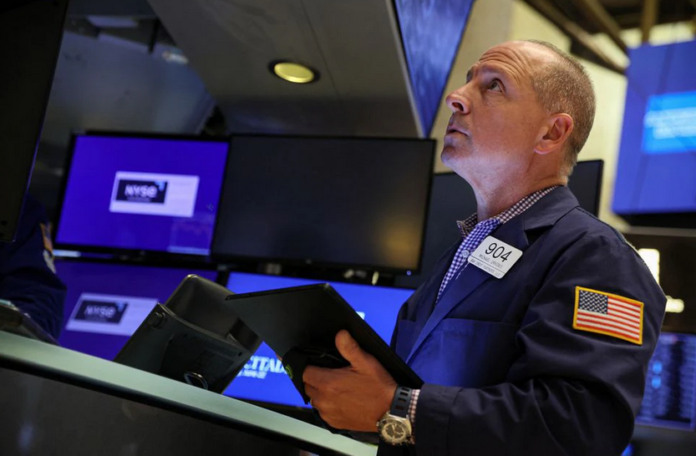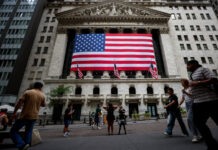
U.S. stocks tumbled on Thursday, setting the S&P 500 up for its worst first six months since 1970, on concerns that central banks determined to tame inflation will hamper global economic growth.
Fears over slowing growth and surging prices have rippled through markets, with recession worries taking center stage as monetary policymakers across the world look to aggressively raise borrowing costs.
Federal Reserve Chair Jerome Powell on Wednesday vowed to not let the U.S. economy slip into a “higher inflation regime”, even if it means raising interest rates to levels that put growth at risk.
The tech-heavy Nasdaq Composite (.IXIC) was set for its largest declines ever during the first-half, while the Dow Jones Industrial Average (.DJI) was set for its biggest January-June percentage drop since the financial crisis.
All the three main indexes are bound to post their second straight quarterly declines for the first time since 2015.
Fed policymakers in recent days have set expectations for a second 75 basis points interest rate hike in July even as economic data painted a dour picture of the American consumer.
“People are raising cash going into earnings season,” said Josh Wein, portfolio manager at Hennessy Funds.
“We’ve listened a lot to the Fed about what they’re going to do. A lot of people are waiting to hear from companies as to what is actually happening and the state of the consumer, trying to get incremental info before they really commit to stocks.”
Large-cap growth stocks including Microsoft Corp (MSFT.O), Apple Inc (AAPL.O), Amazon.com Inc (AMZN.O) and Tesla Inc (TSLA.O) fell between 2.6% and 5.2%, leading declines for the day.
A Commerce Department report showed core personal consumption expenditure price index in May was slightly below expectations, although consumer spending rose less than expected.
“A lot of investors were expecting inflation data to really start to come down. But what we’re finding is that it’s a lot more challenging, and that the inflation data is remaining elevated for longer and probably has not peaked,” said Sam Stovall, chief investment strategist at CFRA.
At 10:22 a.m. ET, the Dow Jones Industrial Average (.DJI) was down 527.89 points, or 1.70%, at 30,501.42, the S&P 500 (.SPX) was down 73.94 points, or 1.94%, at 3,744.89, and the Nasdaq Composite (.IXIC) was down 304.66 points, or 2.73%, at 10,873.23.
Heading into the second half of the year, bruised markets will continue to focus on inflation, unemployment and interest rate increases along with their impact on corporate earnings.
Drugstore chain Walgreens Boots Alliance Inc (WBA.O) shed 5% as its quarterly profit plunged 76%, hurt by its opioid settlement with Florida and a decrease in U.S. pharmacy sales on waning demand for COVID-19 vaccinations.
Declining issues outnumbered advancers for a 4.54-to-1 ratio on the NYSE and 4.43-to-1 ratio on the Nasdaq.
The S&P index recorded one new 52-week highs and 42 new lows, while the Nasdaq recorded nine new highs and 305 new lows.

















